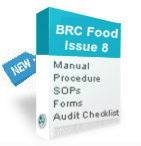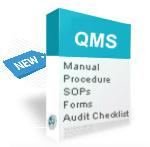
ISO 15189 is a universal standard for medical laboratories that are closely based on ISO/IEC 17025 and ISO 9001. The accreditation supports laboratories in developing quality management systems (QMS), measuring their competence/performance, and ensuring their operations meet industry and legal standards for patient safety. It assesses risks based on probability, severity, and impact on patient care. Additionally, the ISO 15189 standard tries to make a system that is failure-resistant and finds the mistakes before it becomes a serious issue. Also, aims to achieve accurate results in one try by reducing the number of errors. Along with, it helps to identifying the opportunities for continuous improvement in laboratories. It empowers lab staff by involving them in critical problem-solving and the implementation of solutions.
The ISO 15189 standard was published in 2003, it was revised in 2007 and the current version was revised in 2012 with an added section on laboratory information management systems. While ISO 15189 standard is not mandatory, it is recommended that any healthcare and medical lab that wants to produce clinically relevant results and meet the highest ethical standards become ISO 15189 accredited. The accreditation makes sure that laboratories or organizations are fully up-to-date with all the complex legal requirements; it also demonstrate to the customers and key stakeholders the commitment to best practices.
The steps of ISO 15189 accreditation process
Medical laboratories required to follow a general sequence of steps. The steps are mentioned below:
- Submission: Firstly the process start with the submitting the online application for accreditation and submits it to College of American Pathologists. College of American Pathologists then allocates a dedicated lead assessor who will direct the medical lab through all the steps of the accreditation process to receive the ISO 15189 certification.
- Document Review: The lead accessory analyses the submitted ISO 15189 documents to learn about quality management systems (QMS), any major issues associated with documentation, and the lab’s attentiveness for the accreditation assessment. Based on the evaluation, the assessor will recommend some add-on online ISO 15189 training courses. Before the on-site assessment, the labs are recommended to perform one internal audit of its QMS for the ISO 15189 standard.
- Accreditation Assessment: The assessment team achieves a detailed on-site assessment of the QMS and practical competency. This step helps labs to categorize any gaps between the lab system and accreditation requirements.
- Corrective Action and/or Follow-up Visit: Once the assessment complete, the assessing team creates a report on the level of conformance, listing specific non-conformity’s, the lab’s strengths and weaknesses, and any opportunities for improvement. Then labs have to perform a root cause analysis for all non-conformity’s and submit a corrective response to College of American Pathologists.
- Accreditation Decision: The assessing team examined and calculates the root cause analysis for non-conformity and makes a recommendation to the College of American Pathologists 15189 Accreditation Committee. The committee is composed of pathologists and quality experts who review the assessors’ report, documentation, and corrective action reports. The committee will then allowance or reject accreditation to the lab.
- Surveillance and Reassessment: The accreditation bodies perform a review of the laboratory’s QMS focusing on ISO 15189 Section 4, Management Requirements, and Section 5, Technical Requirements. Furthermore, the corrective actions from the earlier report will be reviewed by the committee.
The Benefits of an ISO 15189 accreditation
The ISO 15189 accreditation helps to ensure the top quality of patient care and reduces the risk of any non-compliance in laboratories.
- Risk reduction: It helps accredited laboratories to identify any potential risks and design a plan to decrease or resolve the hazards.
- Improved team morale: The ISO 15189 accreditation standard works to cut down the mistakes, enhance workflows, and mitigate time-wasting.
- Globally recognition: Those organizations that have ISO 15189 accreditation certifications are recognized globally for quality standards of their laboratory services as well as for their products.
- Cost-savings: The ISO 15189 laboratory accreditation system will guarantee that the results produced by laboratories are officially valid and precise, also it reducing both time and money used up on retesting.








